Nigeria’s election chief said he was investigating irregularities as protests erupted amid calls for a rerun in one state following a knife-edge vote over the weekend.
Reports of underage voting, electoral officials being “substituted” and the technical glitches that led to voting being extended to Sunday were all being looked into, Attahiru Jega said.
The electoral headquarters were burnt down in Rivers, an oil-producing state which has become a key battleground for the two main parties.
Attacks on the oil industry pushed global crude prices to record highs in 2004 and former rebels threatened to take up arms again if Goodluck Jonathan – who brokered a lucrative peace deal in 2009 – is not re-elected.
“It is true our INEC office in Rivers state was torched. We have informed police authorities,” Jega said, speaking from Abuja, the Nigerian capital. “We have asked for additional security so this does not occur again.”
Police confirmed two people were killed during voting on Saturday, while the opposition put the figure at “scores” and alleged the vote there had been rigged. By Sunday, thousands of opposition supporters took to the streets of the state capital, Port Harcourt, calling for the vote to be rescheduled. The Situation Room, a civil society group monitoring the election, said it was “deeply concerned” about reports of “interference” in Rivers and neighbouring Imo state.
Rotimi Amaechi, the powerful governor of Rivers state, defected to the opposition after a series of internal squabbles with the ruling party spilled over into the public limelight.
Jega also addressed the failure of some card readers which the electoral body said meant voting spilled over to Sunday in 300 polling stations. Some 400 card readers out of more than 150,000 used had not worked, he said, but insisted this would have no impact on the final result.
“The number of failures of card readers to operate surprised us. One possible explanation is that the people operating them had not been trained.”
Results are likely to be announced by Tuesday, he said.
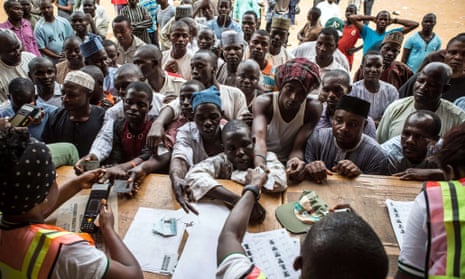
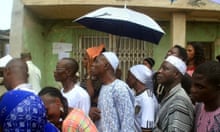
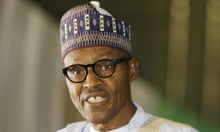



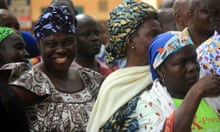

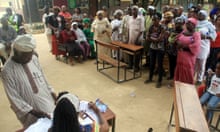
Comments (…)
Sign in or create your Guardian account to join the discussion